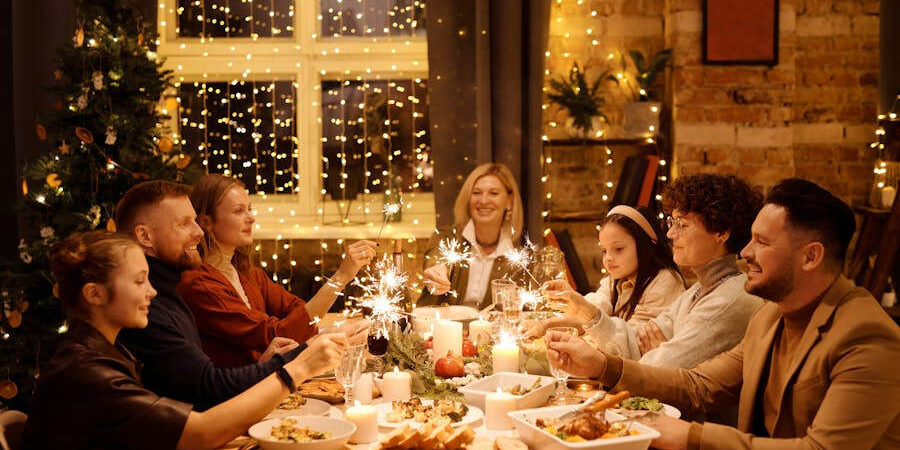Helping seniors with dementia during the Christmas holidays can be a challenge. It can be very stressful for the family members. Having a caring and knowledgeable person to help ease the tension during the Christmas holiday season is a real need for many seniors with dementia.
10 Tips on Helping Seniors with Dementia During the Christmas Holidays
Many older adults can have Alzheimer’s disease or other forms of dementia, which can sometimes affect them more during the holiday season. Here are ten tips that will help you make the Christmas holidays special for them, too.
Keep the Number of Guests to a Minimum – If you have family and friends coming over during the holidays, keep the number of guests to a minimum. Too many people in a room can become overwhelming for someone with dementia.
Have Enough Medications in Supply – If your loved one needs medications on a regular schedule, make sure to fill their prescriptions in advance. Find out what time pharmacies are open or use medication delivery services if necessary. Many local drugstores stay open late during the holiday season to accommodate shoppers who need prescriptions filled quickly before closing time.
Include Them in Activities – People with dementia can enjoy holiday events when they’re planned around their abilities. For example, focus on a single activity instead of multiple ones. That makes it easier for them to follow along and participate in conversations without feeling overwhelmed or confused.
Also, it may help your loved ones feel more secure if they can sit with a family member during dinner or have someone accompany them on errands during the holiday season.
Remember the Joy of Giving – Some seniors living with dementia have strong memories from years past and can recall what they gave to family members or friends on Christmas.
Try to Remove Blinking Lights – Don’t use blinking Christmas lights to prevent your loved one with dementia from becoming confused or anxious. Blinking lights can cause confusion and agitation in people with dementia, especially those with Alzheimer’s.

Set Aside a Quiet Room – A quiet room is a place where your loved one can relax and feel safe. It doesn’t have to be elaborate, but it should be a place where your loved one feels comfortable. It might include soft music, a comfortable chair, and ambient light.
Stick to a Routine – Keep your loved one’s routine as consistent as possible during the holidays. This includes meals, activities, and bedtime. Try to eliminate any significant changes in their schedule to avoid confusion.
Keep Your Home Clutter-Free – If your loved one with dementia is prone to wandering and gets easily confused, it’s essential to keep them safe during the holiday season. Remove all items that could cause an accident. This includes electrical cords, kids’ toys, throw rugs, and Christmas ornaments that could break. Always keep doors and windows locked, so they don’t wander outside.
Try to Eliminate Loud Noises – Consider playing holiday music softly in the background, so your loved one does not become overwhelmed. Keep music from radios and TV volume at a minimum.
Don’t Forget to Take Care of Yourself – While it may be tempting to spend every moment with your loved one, remember to take care of yourself as well! Make sure you get enough sleep, eat well, and relax when you can.

10 Tips on Helping Seniors with Dementia During the Christmas Holidays – Conclusion
Having dementia is difficult enough and shouldn’t be made more difficult by coping with extra anxiety over things like Christmas celebrations. If you know an older adult who lives with dementia, we hope our tips can help your family and friends have a happy Christmas together.






